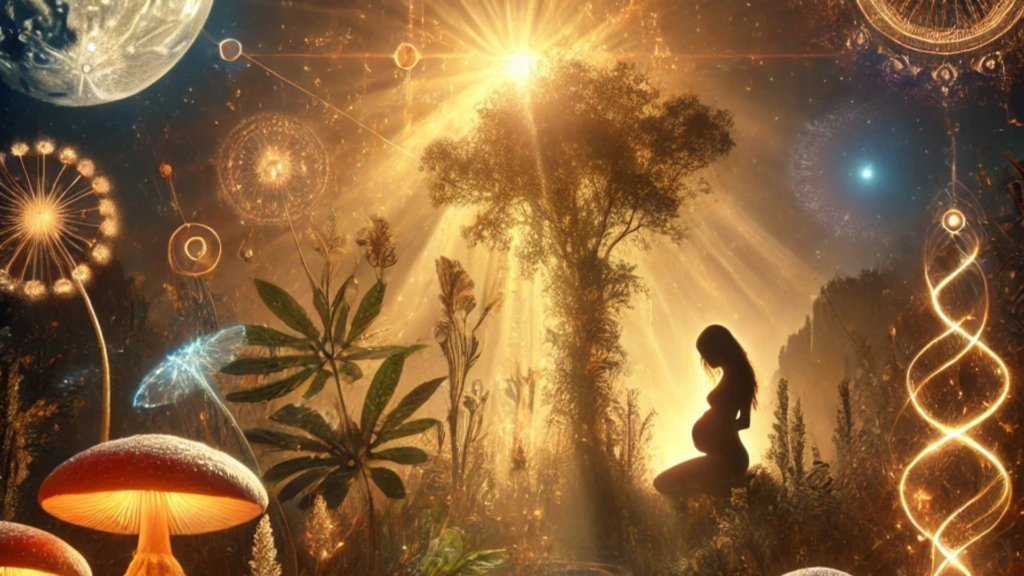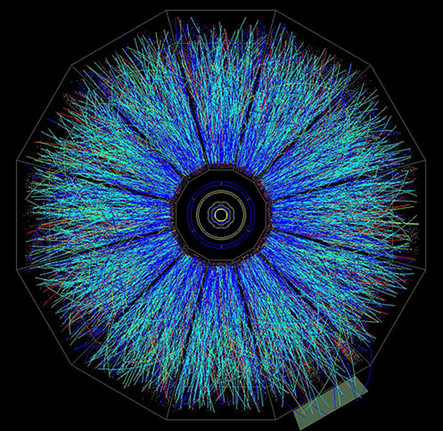Physicalism is the philosophical claim that only what is
physical is real, where physical means: To be found or inferred by
measurement and reason as existing in the world observable by the outer senses
(mainly sight, hearing and touch). Physicalism is distinct from physics.
Physics is (a) an activity based upon observing the world (by means
of the outer senses), theorizing, experimenting and testing and
(b) a body of knowledge which consists of truths established by this
activity. This essay does not deny the truth of any established proposition of
physics. Physicalism, on the other hand, is the ontological position which
asserts that only that which is the subject of physics can be held to be real,
or in other words, that reality consist only of what can be observed by means
of the outer senses or can be shown to exist by the investigations of
physicists. If physical reality does not comprise the whole of what is real
then it is possible to accept the truths of physics while asserting the falsity
of physicalism.There is no generally accepted accurate
ism-word to describe the dominant, modern, secular (non-religious) view of the
world. "Materialism" comes close but "matter" as understood
in modern physics is far less "material" than was previously thought.
Materialism in the strict sense is the view that only what is material is real,
where material means: composed of matter. But what is matter? Even if we
equate matter with the totality of all the atoms and subatomic particles
existing in the universe this still leaves electromagnetic radiation (x-rays,
gamma rays, light, etc.), which has observable effects, and thus is real but is
not material. Thus it is clear that materialism in the strict sense is false.
When mention is made of the "materialist" view prevalent in the
modern world what is being referred to is the physicalist view as defined in
the preceding paragraph. But most people are unaware of the distinction between
material and non-material physical reality, and for such people there is no
difference between physicalism and materialism. For them the only reality is
what they can see and touch (with hearing and smell indicating the presence of
something to be seen or touched), and if they think further about this they
generally accept (if they are not believers in some religious view of
the world) what they are told by the scientific establishment: that there is no
reality other than atoms (and subatomic particles) and radiation.A major objection to physicalism is that
it cannot explain the existence of consciousness. Since consciousness
indisputably exists (as shown by the fact that you are now conscious of reading
this) physicalists can only assert that somehow consciousness
"emerges" in "sufficiently complex" physical systems from
the atoms, subatomic particles and electromagnetic radiation which is all that
a physicalist allows to be real. In the words of Richard Dawkins (The God
Delusion), "Human thoughts and emotions emerge from exceedingly
complex interconnections of physical entities within the brain." (Italics
in the original.) Physicalists thus label consciousness as an "emergent
property" of complex physical systems (they have to italicize
"emergent" so as to slip this past one's critical faculties). But to
label it in this way is not to explain how this "emergence" could
possibly occur.Physicalists can talk as much as they like
about neural structures, resonant patterns of brain activity and the like, but
in fact they have no explanation for the "emergence" of
consciousness from "complex interconnections of physical entities within
the brain." This is actually an article of faith, comparable to
Christians' faith in the resurrection of Jesus Christ. A Christian who understands
their faith says, "I have chosen to believe in Jesus resurrected from the
dead." A physicalist also chooses to believe, that consciousness
"emerges" from complex networks of neurons, but is usually not aware
that they have chosen to believe.Attempts by physicalists to explain
consciousness are actually attempts to explain it away.
"Consciousness explained" by a physicalist is really
"consciousness denied". Physicalists must accept the dilemma that
either consciousness does not "really" exist or that the existence of
consciousness is inexplicable. Neither horn of the dilemma is satisfactory.If, however, consciousness is a
fundamental and irreducible quality of reality (so that a form of consciousness
goes all the way down, even to molecules and atoms) then the existence of
conscious beings such as ourselves is not a total mystery. But if a
physicalist allows the possibility that physical reality is inherently
conscious (which idea most physicalists would reject) then the way is open to
the idea that there is some reality beyond physical reality (that is, beyond
the existence of atoms, subatomic particles and electromagnetic radiation), and
to move in this direction is to abandon physicalism.No-one who follows a religion in their
idea of how the world is is a physicalist. Religious people always believe in
something which is not part of physical reality, often a "supreme
being" which they call "God", "Allah",
"Ishvara", etc. But it does not follow that someone who has a view of
the world other than physicalism must have a religious view of the world. The
falsity of physicalism does not imply the truth of any religious doctrine. It
is entirely possible to deny physicalism without being in any sense religious.The antithesis of physicalism (the view
that physicalism is false) might be called spiritualism, but
unfortunately this term is often used to refer to the 19th C. fascination with
"spirits", in particular, with the invocation of them in seances. So
we shall have to use the term "spiritual view of the world", or
"spiritual view" for short.The spiritual view is that there is a
reality (or there are realities) which can be experienced and known which is
(or are) not within the world observable by the outer senses. This view does
not in itself state what exists within spiritual reality, and thus it does not
entail the existence of "God" or of gods. What exists in spiritual
reality is something to be discovered by experience, and which can be so
discovered.Science is not incompatible with the
spiritual view if by science is understood a quest for knowledge of what
is real. If there is a non-physical reality then a true scientist will wish to
know about it. Modern natural scientists often assume that physicalism
is true, and thereby exclude the possibility of knowledge of a spiritual
reality. Such natural scientists are thus not true scientists. A natural
scientist may state that only physical reality is of interest to him, but he is
not justified in claiming that science can properly concern itself only
with physical reality.In order to show that physicalism is false
we need only show that we may experience and know something which is not found
or inferred by measurement and reason as existing in the world observable by
the outer senses. This must be something which can be experienced and known by
many people. It is not enough for someone to say, "I know God exists
because He speaks to me." Such experience may be convincing to the person
who has the experience but it does not prove that "God" exists.There is no largest prime number; this has
been known since the time of Euclid (who provided a proof). We know this to be
true, but prime numbers do not exist in the physical world, therefore
physicalism is false. If it be objected that there are many instances of three
apples, five oranges, etc., it can be replied that there is a finite number of
objects within physical reality and, whatever this number is, there is a larger
prime number. I am not suggesting that prime numbers exist in some kind of
Platonic heaven. I do suggest, however, that the mental ability of
humans to conceive of prime numbers (and of infinite-dimensional Hilbert spaces
and the like) cannot be explained by Darwinian natural selection, and is
evidence that a higher intelligence is expressed in humans (or at least, in
some of them).Consider also the case of beauty in music.
The music of J.S. Bach has universal appeal. Much of Bach's music is not just
pleasant to listen to, it is beautiful, sometimes profoundly so. The same is
true of the music of Mozart, Beethoven, Mahler and Puccini – there is no need
to give examples; millions of people know the beauty to be found in their
music. But this beauty does not exist in the physical world. There is no system
of atoms, molecules, electromagnetic radiation, etc., however complex, which is
the beauty which can be observed in, say, a Bach cantata, the slow movement of
a Mozart piano concerto, Mahler's "Resurrection" Symphony or a
Puccini aria. This beauty is not perceived by the ear, but by the mind; we are
conscious of it; we perceive it not by any outer sense but by an inner sense.
And, on this planet, it is only humans whose consciousness is sufficiently
developed to be able to perceive beauty at this level. The properties of our
bodies can be explained by Darwinian natural selection but not the properties
of our minds.Human consciousness can have as its
objects of awareness what is beyond the physical world. Since the physical
world is the world in which our bodies move, and that in which we interact
bodily, consciousness of objects in non-physical reality tends to be private.
But if enough people can agree on the details of an experience of something
which is obviously not an object in the physical world, then that something
acquires an intersubjective reality, or in other words, an objectivity. For
example, a rainbow does not exist as a system of atoms, molecules, etc., yet a
group of people (hundreds even) may all see the same rainbow. Of course, the
rainbow can be "explained" in terms of sunlight being refracted by
millions of water droplets, but this simply explains the pattern of
electromagnetic radiation striking the retinas of the people seeing the rainbow
– it does not explain their experience of the rainbow (because physicalism
cannot explain consciousness).People observing a rainbow can agree on
the order of the colors (from indigo through green to red), whether it is a
double rainbow, etc. Rainbows, of course, are intangible, and do not occupy any
specific volume of 3-dimensional physical space, even though they can be
observed as occurring in physical space. Thus we tend to think of them more as
illusions, and rainbows do not themselves show that physicalism is false.But they do illustrate the principle that
reality is what is intersubjectively verifiable. Rainbows are real, but are not
physical objects. Thus there may be other things which are real, because they
are (or can be) experienced by many people, but which are not physical.In order to experience these other things
a change in brain chemistry is required. The human brain normally functions in
a biochemically standard manner which is oriented toward survival in the
physical world. This mode of functioning emphasizes the contributions of the outer
senses (particularly sight) and motor coordination and ability (when a monkey,
dashing along a path, runs into an object it must very quickly decide whether
or not this is another monkey, and in either case what to do about it).Human brains, however, have some strange
abilities, which are triggered by a change in brain chemistry. A human brain
exposed to LSD, psilocybin, mescaline or some such substance, functions in a
way which allows forms of consciousness to arise which are radically different
to everyday consciousness. Someone who has not directly experienced these
alternative forms of consciousness can have only a very vague idea of them,
however much they read about them. In these altered states an expanded
consciousness is possible – an expansion beyond the everyday consciousness
which is focussed on (and largely constrained by) input from the outer bodily
senses. One's mind can wander into strange realms.Shamans are trained to do this; they do
not so much "wander" as travel purposely. And in their travels they
meet and communicate with spirits, which often appear to them in the form of
animals. Shamans have for many millennia used psychoactive plants (peyote,
datura, Amanita mushrooms, etc.) to induce states of consciousness which allow
them to enter this non-ordinary reality and communicate with spirits, who
impart information to them (when and where to hunt, where lost objects may be
found, which plants are good for which purposes, etc.). Despite the evidence
collected by anthropologists who have studied shamanic cultures, physicalists
tend to deny that shamans enter a non-ordinary reality, simply because it is
inconsistent with their physicalist assumptions. In this denial they are
betraying their vocation as scientists, because a true scientist seeks to know
all of reality, and to know it by experience and observation (supplemented by
reason). To discount anthropological data because it is inconsistent with one's
assumptions is clearly unscientific.Physicalists may, if they wish, enter the
same non-ordinary states that shamans do, and by the same means (although
lacking in the experience and training that a shaman possesses). Despite
benighted, draconian, pernicious and contemptible laws criminalizing the use of
psychoactive substances, it is still possible to partake of the ayahuasca brew,
to find psilocybin mushrooms sprouting from cow pies, and to obtain by discreet
means a variety of psychedelics (since there are many people who know the value
of these substances and risk their liberty in order to assist others to gain
the experience of non-ordinary reality).The most powerful psychedelic (at least,
in my experience) is N,N-dimethyltryptamine (or DMT for short), a substance
which allows anyone to prove to themselves the complete falsity of the
physicalist assumption that all reality consists of systems of atoms,
sub-atomic particles and electromagnetic radiation. DMT provides access to a
realm which is so totally weird that it is inconceivable that it could be part
of the physicalist's limited reality. It also allows experience of a realm
inhabited by discarnate
entities who are self-evidently independently existing intelligent beings,
but whose place of existence clearly cannot be this physical world.These beings have been reported by many
people. It is not a matter of a few "wild-eyed crazies" muttering
about "self-transforming machine-elves". By now hundreds, probably
thousands, of people have experienced these entities (first brought to public
attention by Terence
McKenna; see here,
here, here and here for reports), and
all agree that they, and the space they inhabit, are totally weird (and
the further you go the weirder it gets). Thus these entities have
intersubjective validity – lots of people agree about them, or at least, that
they exist. And lots more would be able to report that they exist if DMT were
legal. It is mainly because psychedelic experience exposes the falsity of the
mainstream definition of reality that the use of psychedelics is prohibited by
those who benefit from keeping the mass of people in a state of spiritual
ignorance (thereby making it easier to keep them in a state of involuntary
servitude).Terence and Dennis McKenna stated already
in 1975 (in The
Invisible Landscape):The idea
of the simultaneous coexistence of an alien dimension all around us is as
strange an idea in the context of modern society as it must have been to the
first shamans, whose experiments with psychoactive plants would have soon
brought them to the same tryptamine doorway. What is the nature of the
invisible landscape beyond that doorway? … If the world beyond the doorway
can be given consensual validation of the sort extended to the electron and the
black hole … then our own circumscribed historical struggle will be subject
to whole new worlds of possibility.Here's an extract from one
of the reports linked to above:I am
outside in a very futuristic patterned garden with bright coloured, very small,
dots over everything, which are all flowing in certain directions. No plants as
such but garden nonetheless. There is a corridor with a very tangible ambience,
one can feel the space around. It now appears to be a temple structure of some
futuristic sort, like some space age Hindu/Mayan temple with the walls
displaying architecture similiar to the Pyramid of the Sun at Teotihuacan
except the walls are inverted to angle outward with the terraces reversed. It
seems very real but also very fleeting, changing rapidly. There are beings that
are here the whole time from the very moment I entered the trip right to the
moments of trying to get out of it. They seemed to have been waiting for me. …
They were very colourful, had strange relentless grins, very slender and could
move their arms around at strange angles. Despite the high-frequency quantised
pulsing in which they moved, there was still a very fluid flow to it. …
These beings just kept on grinning. They knew that I knew that this was the
price paid to enter their "special" world. They were very keen to
show me their magic. I would try to look away but each time I tried, they would
stop my breath and do some amazing transformational magic which I simply can't
describe and [which] was so amazing that I was prevented by awe from looking
away. Sorry, I can't even hold it in thought for more than a fleeting moment.
It was very beautiful and totally bizarre. It was as though the strength of magic
taking place was way too much. Solid forms of colour and shape, way beyond the
geometric forms. In your face. They kept on fanning out this magic like opening
one of those decorated hand fans. They knew that this was the only place that I
could experience it. Not even in memory could I see this stuff. I couldn't take
it back with me. They were going for it big time. It was a really solid reality
but constantly changing.
For over 200 cases of DMT users reporting
encounters with intelligent entities see 340 DMT Trip
Reports. These reports show that these entities are experienced as existing
in some kind of space, but it is clearly not the space of ordinary experience.
It has been compared to 4-dimensional space, and has been called hyperspace
for lack of a better word. Hyperspace, and the DMT entities found within it,
constitute a fundamental challenge to those philosophers who espouse
physicalism in any form.There are three positions which a
philosopher can take with regard to hyperspace and the DMT entities:
- Hyperspace is no more real than the space experienced in dreams,
and the so-called entities within it are no more real than people
experienced in dreams (regarded as merely subjective mental phenomena).- Hyperspace is real and is not part of physical space; thus its
inhabitants are non-physical.- Hyperspace is real and is fundamentally of the same stuff as the
physical world; both are physical but are experienced in very different ways.Given the (presumed) near-total lack of
experience of the DMT state among contemporary philosophers, it is almost
certain that #1 would be their overwhelming response. But this is, basically,
an argument from ignorance (since these philosophers have no direct knowledge
of the DMT state), and it rules out a priori a body of evidence
(namely, the testimony of many people who have experienced the DMT entities)
simply because that evidence is inconsistent with commonly held assumptions.Actually it is impossible for
anyone who has not experienced Level III of the DMT
experience to imagine it, however much they have read about it or talked to
those who have had the experience. This level of the experience is of a nature
which is radically different from everyday experience, dream experience
and even most other psychedelic experience (having taken a few LSD trips does
not enable one to imagine a full-on DMT experience). Thus no-one who has not
experienced DMT hyperspace is qualified to say anything about it, except to
discuss its philosophical implications based on the reports of those others who
actually know what they are talking about.#3 is possible for a physicalist (albeit
an unconventional one), but requires an explanation of how the DMT entities can
be claimed to be composed of the same stuff (atoms, molecules, etc.) as the
entities within the ordinary physical world. Perhaps (since, for a physicalist,
'energy' is the only alternative to quarks, mesons, protons, atoms, etc.) they
are not composed of anything 'material' but are 'energy beings' of some kind?
It is likely, however, that the nature of those entities is, in our present
state of intellectual development, totally incomprehensible by us. In
the words of the renowned British biologist J.B.S. Haldane (himself a great
psychonaut), they are "not only queerer than we suppose but queerer than
we can suppose."If #1 is rejected as being based on
ignorance and prejudice, and if #3 is not a defensible position, that leaves
#2. It makes sense if we consider the hypothesis that what we perceive as the
physical world is actually a part of a larger reality (or more exactly is a
bubble within a larger reality, with our ordinary experience of physical reality
being an experience entirely within that bubble and subject to
limitations imposed by it), and that it is the non-physical part of that larger
reality which we experience directly in the DMT state.It is possible that this physical world is
actually an incubator of souls, in the sense that, just as the womb is an
incubator of our physical body, our life in this world enables the development
of a mental body which can persist beyond the dissolution of the physical one;
and that just as birth is a transition from the womb to a higher-dimensional
and vastly more complex world, so death (if the mental body is sufficiently
developed) is a transition from the world of physical life to the
higher-dimensional and vastly more complex world of the DMT entities.Or it may be that this physical world is
constructed and maintained by the entities inhabiting that hyperdimensional and
vastly more complex world, and that our souls (our hyperdimensional selves)
pre-exist in that world and incarnate in physical bodies, returning at the
death of the body to the hyperspatial world from which they came. Or perhaps
both are true.Galileo pioneered the foundation of
physics upon observation, and he developed an early form of the telescope to
view the mountains of the Moon and the moons of Jupiter, whose existence was
denied a priori by the Aristotelian philosophers of his time. In
this dispute two of these philosophers, Cesare Cremonini and Giulio Libri,
refused even to look through Galileo's telescope. Similarly, most if not all
contemporary philosophers refuse to look through the lens provided by
psychedelic substances so as to perceive a reality which physicalists deny
exists (just as the philosophers of Galileo's time denied the existence of the
moons of Jupiter). Observations resulting from the use of DMT absolutely refute
the conventional physicalist view of the world, but at present this is known
only by a relatively small number people – who are the true gnostics of this
age.
Image courtesy of Argonne National Laboratory, via Creative Commons license.

1:1 with Mikaela de la Myco: “Rematriate medicine, period.”
Mikaela de la Myco on psilocybin, motherhood, and the future of natural medicine—challenging legalization, research, and the role of women in psychedelics.












